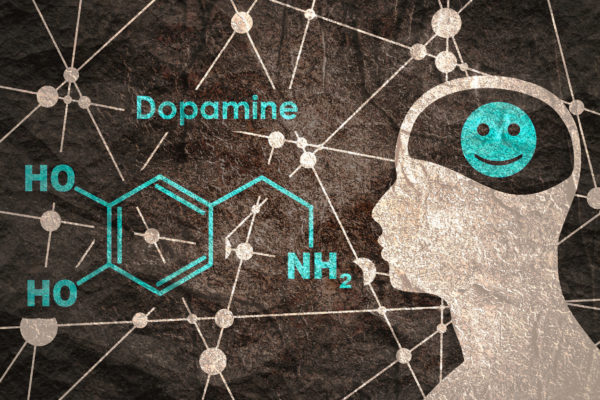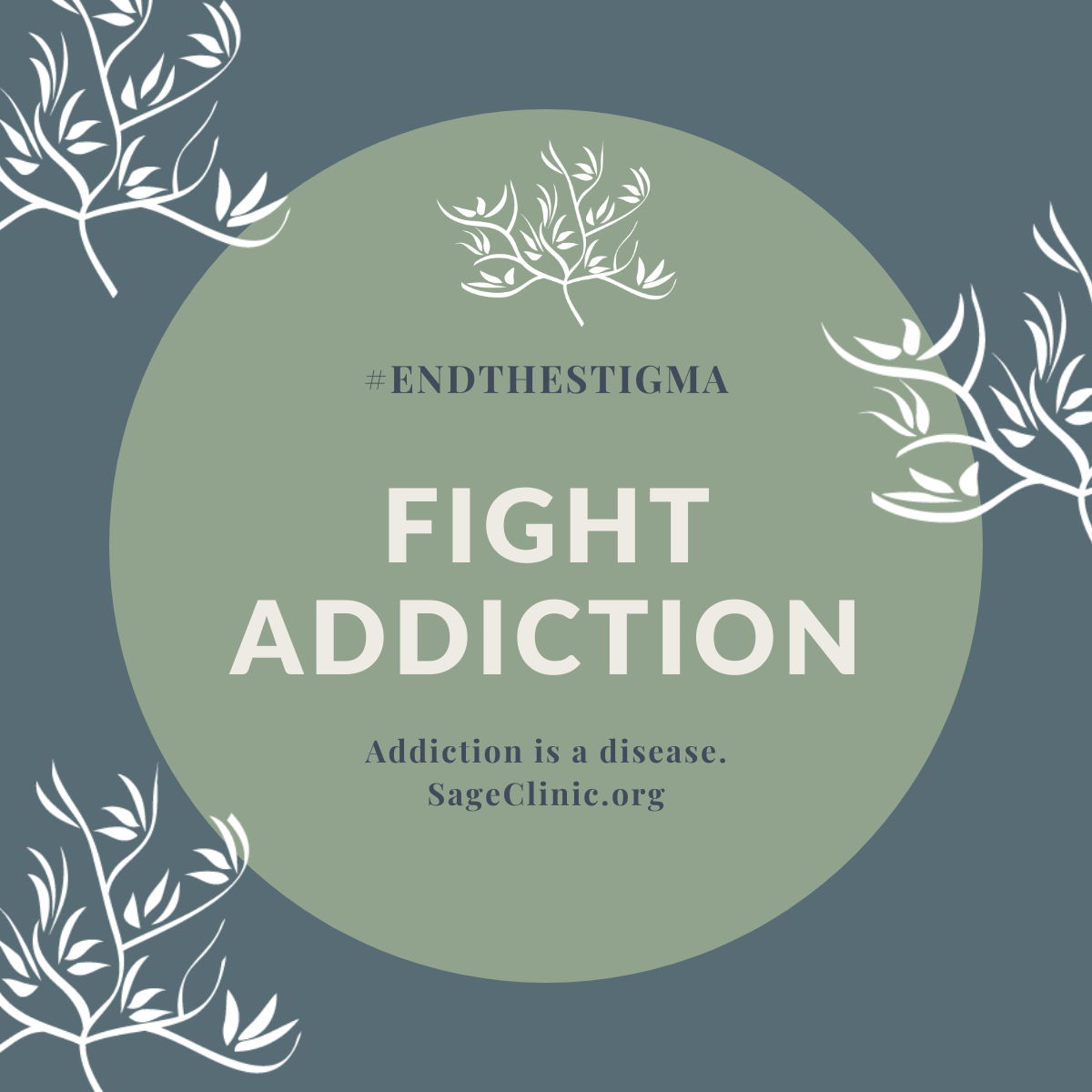What really is addiction? The term has become one of the most loaded and stigmatized words in medical science. Society has long seen addiction as a preventable collapse of judgment.They see people with addictions as individuals who aren’t strong enough to break out of a bad habit because they lack the self-control to stop pursuing a harmful behavior or substance.
Like any medical field, the study and perception of mental health has come a long way in the past decades. However that doesn’t mean some of its more archaic perceptions, like the false assumptions above, aren’t still present when dealing with the stigma of addiction.
Is addiction a disease? The simple answer is yes, but to fully understand why we must understand what exactly a disease is. It’s important to keep discussing this because the more education we have on the topic, the less it will be stigmatized. When we treat addiction as a moral failing rather than a disease, we mistreat those we are trying to help.
Defining Disease and How It Relates to Addiction
A disease by definition is any type of medical condition that inhibits the human body from working as it should. Diseases can be brought on by genetic factors. Diseases can be early onset, can come into existence because of environmental and lifestyle factors, or can affect otherwise healthy people.
Disease is determined by a number of varying factors from psychological, behavioral, environmental, and genetic. It can affect anyone for any number of reasons and similarly can occur in any of the body’s major organs. Some diseases are curable, and others can be treated into remission. In the end, disease prevents an organ from functioning to complete its job in the body.
In fact, any of these specific circumstances for symptoms or health problems can be applied to almost any of these ten relatively well-known diseases.
- Cardiovascular Disease
- Type 1 Diabetes
- Rheumatoid Arthritis
- Asthma
- Cancer
- Crohn’s
- Dementia
- Multiple Sclerosis
- Parkinson’s
- Alzheimer’s
You might have already noticed that in the diseases listed above, those last four are diseases that directly correlated with the brain. Disease commonly brings thoughts of the pulmonary, respiratory, or even renal systems. In reality, disease is as prevalent in the brain and in mental healthcare as it is in the liver or lung. So, is addiction a disease of the brain?
How Addiction Affects the Brain

Dopamine is a chemical released by the brain and acts as the body’s “reward system.” It is tied to activities that bring elation or joy. Here are some examples of activities that offer dopamine release below.
Exercise
When you go for a run or exercise, the brain releases dopamine, giving the body a rush of post-workout bliss.
Music
When you listen to a favorite song, the brain releases small bursts of dopamine, giving you that feeling of euphoria and happiness in the tune.
Food
When you snack on a piece of chocolate, the brain is releasing dopamine connecting joy with the taste.
When these things occur, the brain will remember these moments as a positive experience and will encourage our body to go back to repeat these things. By nature, our bodies seek comfort and pleasure. However, if dopamine is associated with good experiences, why does it play a dangerous role in substance abuse?
Dopamine Response in the Body
The issue with alcohol and drugs is they release a lot of dopamine – much more than music, exercise, or food can provide. In fact, despite the feelings of joy it brings, the amount of dopamine that comes with drugs and alcohol is very unhealthy. However, the brain tricks the body into believing it is.
Dopamine being released during a workout or when jamming out to a song offers a small healthy dosage designed to bring contentment and give the body a boost of literal positive energy. The dopamine release from drugs and alcohol unlocks the floodgates, dousing your body in unnaturally high dopamine levels, which can lead to the following issues.
Dependency
With continued use of drugs or alcohol, the body begins to rely on a substance for dopamine instead of producing its own.
Lack of Response
With substance abuse, activities like that jog or that favorite song aren’t producing the same positive effect because your body isn’t producing as much dopamine in reaction to those activities.
Depression
Things that brought you happiness now are not doing anything to positively affect the body, so you no longer feel normal or happy with the results. It then takes the substance to get you to feeling like your old self.
Considering this cycle, it’s not a surprise that an individual who might be using drugs or alcohol recreationally becomes addicted once this shift in the brain occurs. No longer is the substance used for fun, but it becomes something that the body begins to crave. Once addiction occurs, the patient’s brain has literally been rewired to believe it needs the abused substance in order to function properly.
This altering of brain chemicals doesn’t just increase cravings. It also inhibits the brain’s ability to make good judgment, literally rewiring the command center in charge of decision making. The rewiring fuels addiction.
Examples of this change vary among individuals, but here are a few to look out for:
- A straight-A student becoming addicted and being unable to study or work because of cravings.
- A parent taking a substance or becoming inebriated when they’re supposed to be looking after their children.
- A law-abiding citizen taking part in unlawful or illegal activities to secure funding for a substance.
Addiction takes over your brain to the point where normal functioning is impossible without the substance. If we consider this, it’s obvious that addiction is a disease because it directly alters the function of one of our most crucial organs – the brain.
Why Do Some People Say Addiction is Not a Disease?

What Are the Risk Factors of Developing Dependency?
Substance abuse has a number of risk factors that can increase the potential of a patient becoming addicted, as well as bring a number of hurdles to patients who are trying to conquer addiction. These include psychological factors, behavioral factors, environmental factors, and genetic factors as well.
One of the most common ways to tell if a patient is at risk for adapting substance abuse behaviors or becoming an addict is genes. If a patient has a family history of substance abuse, it increases the likelihood of addiction by 60%, according to some studies.
Even more so, growing up in a home where drugs and alcohol are prevalent only adds to the dangers of addiction.
This is where environmental risk factors come into play, which includes the following.
- Children growing up in households with substance abuse are far more likely to learn unhealthy behaviors at a young age and ignore many of the warnings and dangers of drugs and alcohol.
- Children in these households are far more likely to begin using substances before the age of 25, and during these developmental years, the brain is incredibly vulnerable to addiction.
- Drugs are also more prevalent in these households, making it far easier for teens and children in these households to obtain drugs or alcohol.
- Students can also be exposed to drugs in school or have access to the substance-abusing households of a friend or classmate.
There are also a number of biological and psychological factors that come into play as well.
- Many addicts use substance abuse as a means to deal with anxiety, depression, or other mental health issues.
- Some addicts have experienced trauma and initially were using drugs or alcohol to cope and became dependent on a substance.
- Often, someone who has mental health issues is also more likely to abuse a substance or is more vulnerable to addiction.
- Some individuals are also simply more biologically inclined to be affected by any given substance, similar to how something as benign as caffeine has a greater effect on some individuals over others.
There are certainly still behavioral risk factors, which come down to an individual’s likelihood to actively seek out substances as new experiences and try drugs or overindulge in alcohol. Even then, many of these behavioral risk factors can be connected to environmental or biological triggers. All of these can greatly influence an individual to substance abuse and potential addiction.
Is Addiction a Disease That You Can Cure?

Many blame an addict’s relapse on poor judgment or a lack of self-control, but that’s what makes addiction so devious. There are many mental and medical factors that prior addicts must deal with that can cause relapse, including some of the following.
Symptoms of Withdrawal
In earlier stages, those dependent on drugs or alcohol are likely to have withdrawals as their body craves the substance.
Lifestyle Changes
Most addicts face a major life change to pursue sobriety, making it incredibly hard to organize their life in a new way that prevents opportunities for future relapses.
Exterior Triggers
Even after years of being sober, a person with an addiction may become triggered by something that reminds them of taking the substance. Triggers include driving by an old building where they used to purchase the substance, hearing a song on the radio they would listen to while taking the substance or even meeting an old acquaintance with whom they took the substance.
Even after years of sobriety, any of these factors can quickly cause a relapse.
Relapses are incredibly common for people with addictions, but a relapse should not be seen as a moral failure or defeat. Like any chronic disease, addiction is a constant struggle that requires monitoring and care in treating but also compassion and understanding.
Like any disease, there are many ways to get help in managing addiction.
Is It Time for Opioid Detox? Take the Quiz
Is Addiction A Disease I Can Get Help For?
Even though there is an unnecessary stigma surrounding addiction, the medical field has made impressive strides to make overcoming addiction attainable for many individuals.
Some of the most prominent or effective treatments for addiction include:
- Treatment at an addiction or detox center that specializes in easing the pains of withdrawal and helping to build a healthy routine.
- Joining a support group of individuals who have shared experience and can offer emotional support.
- Attending therapy and working with a licensed therapist to help work through anxiety, depression, or other mental health factors that aggravate addiction.
- Finding healthy new hobbies and supportive communities and removing yourself from places and people who don’t support your journey to sobriety.
Get Addiction Help Without Shame at Sage Neuroscience Center

Start your journey towards change and healing. Fill out our new patient interest form to get started.

Therapist & SUDS IOP Facilitator
Andrea Gonzales is a Licensed Substance Abuse Associate who is currently going to school to be a Licensed Mental Health Counselor. She specializes in LGBTQI+ issues. In her free time, Andrea enjoys karaoke and crafts like crocheting. A fun fact about Andrea is she used to work as a preschool teacher and she uses the patience she learned in that position in her practice today.
Read Andrea’s Full Bio | Browse All Articles Written by Andrea Gonzales
